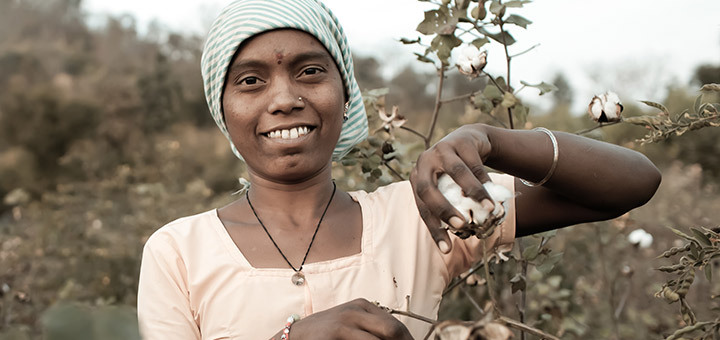The world is currently facing a pandemic, and this is having a huge effect on the people who make our clothes.
Retailers have had to close their doors and encourage their customer base to order online. None the less, the desire to buy new clothes appears to have decreased due to the Coronavirus making us focus on other aspects in our lives.
It is worth noting that there is potentially a positive amidst this crisis that we are learning to care for the clothes we already own better, more and more people are opting to mend and make clothes and also adopt a mindset of longevity when it comes to our wardrobes; suggesting an encouraging step to end overconsumption.
However, the halt in manufacturing has meant that the most vulnerable, lowest paid people in the fashion supply chain are feeling the worst effects. IndustriALL, the global trade union has reported that millions of garment workers have lost their jobs as a result of the virus and have no access to social or financial safety nets.
As a result of the pandemic, many major fashion brands and retailers are cancelling orders and stopping payments for orders already placed, even in some cases when the work has already been done. As a result, these brands seem to be taking no responsibility for the impact this has on people working in their supply chains. Many factories have been left with little choice but to destroy or keep hold of unwanted goods already made and lay off many (if not all) of their workers.
The Fashion Revolution movement is doing everything it can to try and combat this issue. Although we are all staying at home, we can make sure our voices are heard through social media. Fashion Revolution are encouraging their global community to ask #whomademyclothes and demand that fashion brands protect workers in their supply chains as they would their own employees. Not only that, Fashion Revolution has also put together an email template that users can download (via their website) and populate themselves, allowing them to easily contact their favourite fashion brands and make sure that the workers making their products are protected, supported and paid properly during this crisis.
Fashion Revolution has also reported on how specific fashion brands are reacting to this crisis:
• Primark has created a fund to pay its supply chain workers. However, there are still questions around whether the brand will be receiving and paying for orders already made or in-production from its factories.
• H&M, Target, Marks & Spencer, Inditex, Kiabi and PVH have all publicly confirmed that they intend to receive and pay for products already made and orders already placed; in some cases though, no timeline has been outlined on when payments will be made.
You can read more on how fashion brands are reacting on the Fashion Revolution website.
Below are some non-profit organisations that are also trying to combat and raise money for this issue during the pandemic:
• AWAJ Foundation was founded and is led by garment workers in Bangladesh that provides support to over 740,000 workers. Donations will mainly take place in the form of cash disbursements to ensure that basic needs for food and shelter are met.
• The World Fair Trade Organisation (WTFO) has launched its #StayHomeLiveFair campaign to support its global network of workers, farmers, artisans and communities.
You can read more on non-profit organisations over on the Fashion Revolution website.
We ensure that we only work with ethical brands that truly look after all their suppliers in every part of the supply chain. Additionally, we are also allowing our customers to donate to MSF at checkout to support the charity’s coronavirus appeal.

